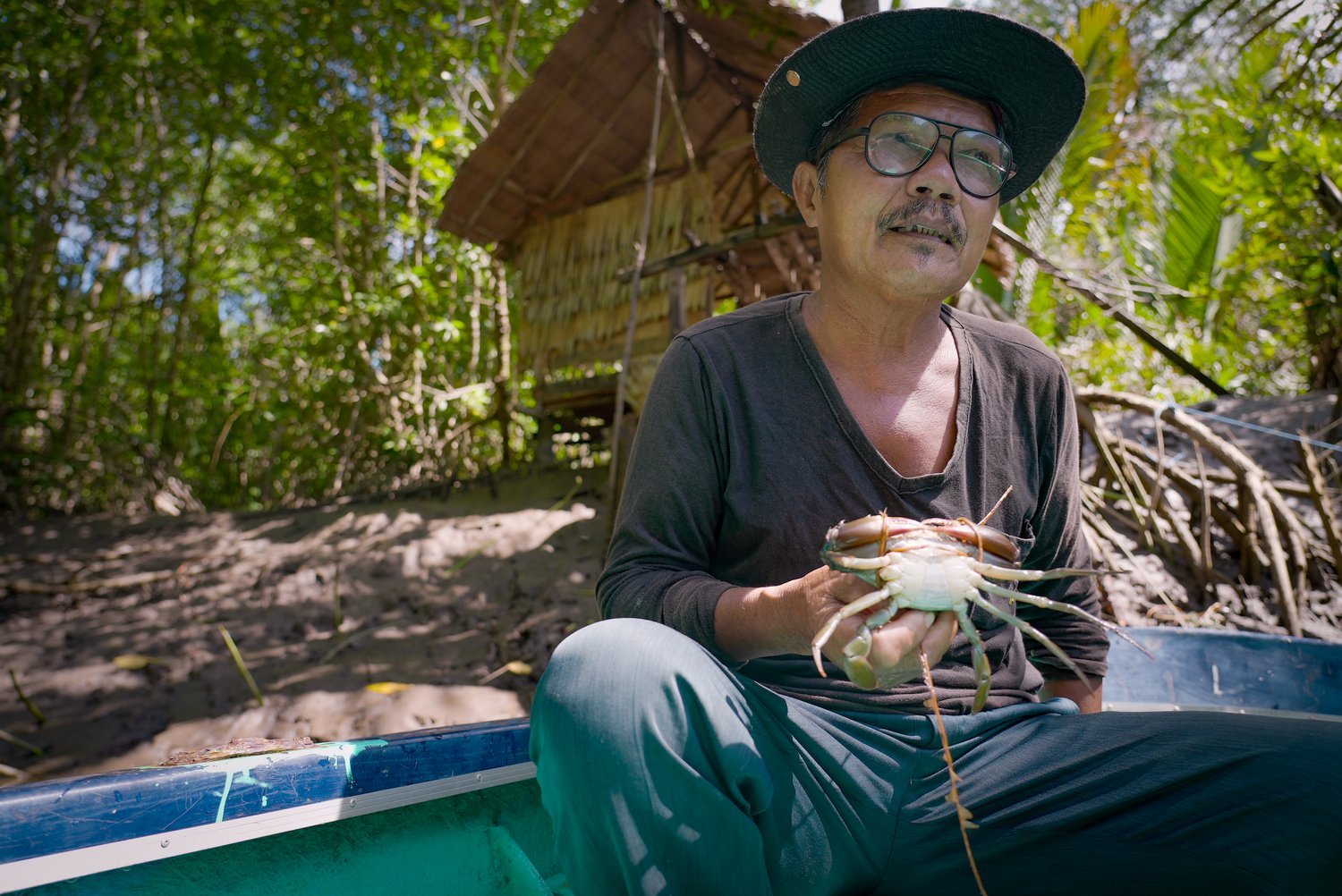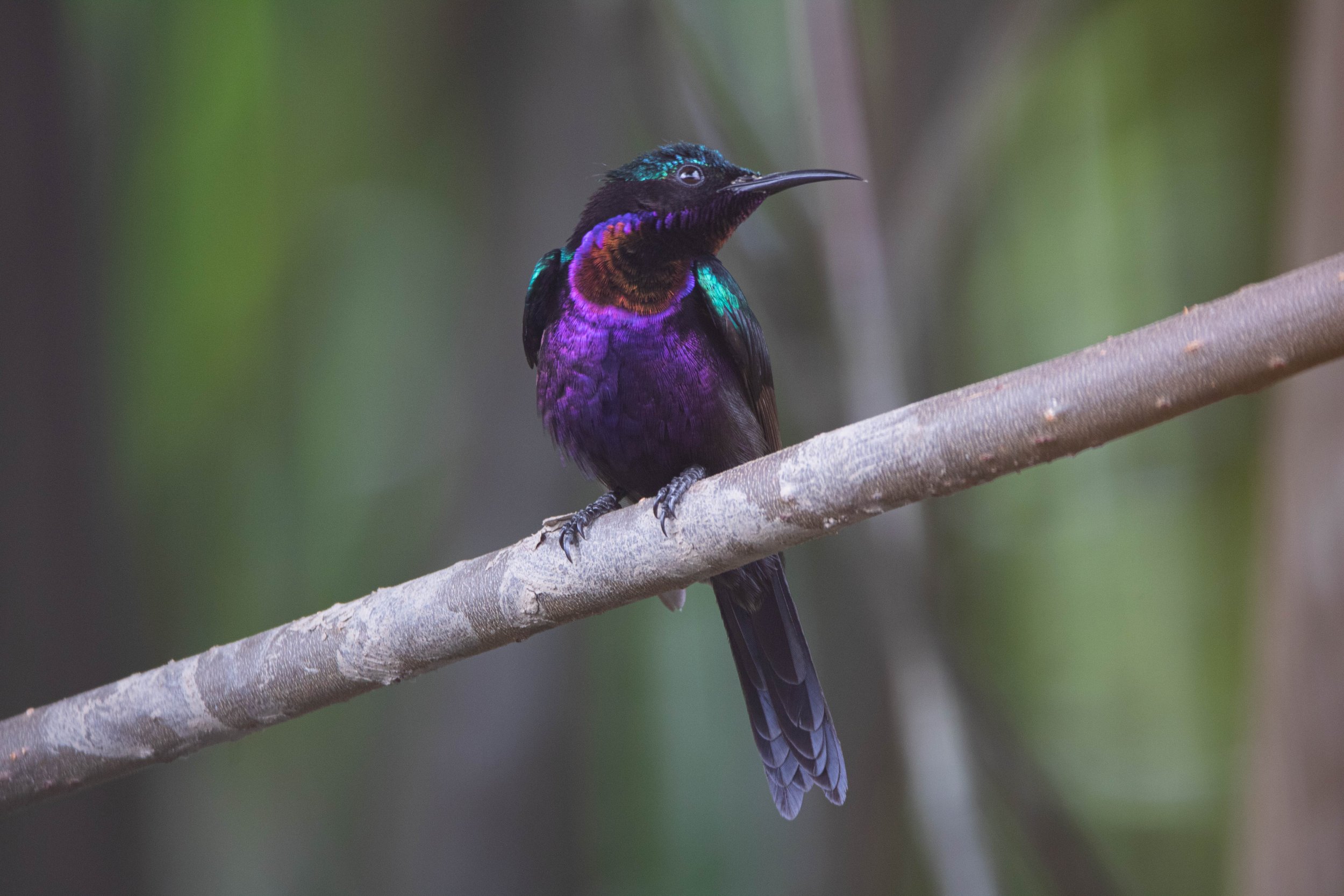Our favorite photos of 2021 and the stories behind them
As we say ‘Selamat tinggal’ to 2021 we reflect on the impact the team at Planet Indonesia has had and the incredible people who have made it all possible this year.
Building Resilience is often a phrase associated with local communities and the work we do at Planet Indonesia. This concept has truly been tested this year. With the world currently facing two crises, the Covid-19 Pandemic and the worsening effects of Climate Change, our work has become more demanding yet even more crucial. More than ever before our team has had to listen and adapt to the needs of the village partners we serve. When we established Planet Indonesia seven years ago, our Conservation Cooperative framework was built to combat the drivers of cultural and environmental degradation. By working in this way in partnership with local community experts of natural resource management, our holistic approach is perfectly positioned to combat these global issues at a local scale. While this year has not been easy, it amplified why effectively engaging locally-led conservation solutions, ensuring rights and services, and supporting democratic village-led governance towards natural resource management is so important.
We are lucky to be supported by you, our loyal donors, partners, advocates, and fundraisers. In whichever way you helped Planet Indonesia and our Mission this year we want to say a heartfelt thank you. We hope you will continue to help us advocate for and advance community-led conservation.
Enjoy all our photos and stories below and from all of us at Planet Indonesia we wish you a safe and happy new year.
Scroll down for: iMPACT BY THE NUMBERS
Conservation going viral
We have now supported 26 Conservation Cooperatives active across four sites in West Kalimantan. We started in 2017 working with just five Conservation Cooperatives between two villages.
In our Gunung Nyiut sites, several of the communities we partner with have gone further, taking a big step forward in conservation by signing a conservation agreement as part of our Agroforestry Program. This agreement outlines several beneficial activities that members agree to partake in such as supporting land conservation programs and protecting biodiversity.
Sustainable agriculture and climate resilience
These community members in Tangkit Hamlet and Nanga Pari Village in the Sintang District of West Kalimantan are working together to build something called a demonstration plot to help train other community members on how to develop and use organic fertilizer created from rice husk charcoal.
This year the communities we support through our Sustainable Agriculture Program have applied various sustainable farming techniques to not only increase yield, but to help protect the environment around them. A demonstration plot also allows them to experiment with techniques to see which ones work best for them.
Overall, this year we have witnessed a 55% increase in income from our sustainable agricultural farmers using their climate smart techniques.
Healthy Families Initiative and vaccine access
This year has been an extraordinary year for our Healthy Family Initiative as we continue to face down a global pandemic, challenging us to continue to add COVID-19 related support to our regular programming. One of our most significant Covid-19 related initiatives is assisting in logistics planning and securing accommodations for community members to increase access to COVID-19 vaccinations.
Running a health clinic is no easy task so we work with health ambassadors, who are typically women, within each community by providing training, equipment, and other means of support so they can successfully run each clinic. We now support 160 health ambassadors working across 14 Conservation Cooperatives.
Tree planting
In February, conservationists from the village of Sungai Nibung monitored the progression of a major restoration project they led, planting more than 18,000 mangrove seedlings to return 4 hectares of coastal area back to quality habitat that supports a variety of wildlife and multiple villages.
These efforts are instrumental in mitigating climate change as mangrove forests can sequester more carbon annually than any other ecosystem on Earth.
Additionally, by July, the communities we support in the Gunung Nanning Protection Forest had planted more than 1,400 seedlings of various fruit trees and crops such as bitter bean, durian, and cacao. Every four months, community members monitor these plants to assess the overall health and development of these important food supplying crops.
2021 saw in total, 32,440 mangrove trees planted and 4,937 agroforestry trees planted.
Watch our short video: Habitat for Hope
Expanding our partnerships: Improving governance of Kalimantan’s largest marine protected area
We are excited to announce that we have once again expanded our support to communities across Borneo. This year, we began offering our services to two communities in Kalimantan’s largest marine protected area, reaching the 2,500 people living within the Karimata Marine Reserve. We now partner with 20 villages in four sites.
Locally Managed Marine Areas
Fishermen in Kubu Raya are seeing a 29.7% improvement in yield from periodic closures. Each closure typically lasts three months and is an important strategy in maximizing mud crab yield in these mangrove forested areas. These closures allow the crabs to grow and reproduce which has both ecological and economic advantages. Implementing a few closures a year is an important mechanism for developing sustainable fisheries which contribute to sustainable livelihoods. Mud crabs are a common species found in coastal mudflat ecosystems and are an essential part of the food web for humans and wildlife.
Understanding wildlife populations
In March, we published a paper with data we have been collecting through interviews of local experts living alongside wildlife. This method is called Pooling Local Export Opinions and it has allowed us to understand trends in wildlife populations in a quicker, more reliable, and cost-effective manner compared to more traditional methods of studying wildlife. The data has allowed us to gain a better understanding of the density of various animal populations we help conserve.
We are also starting to see wildlife return to patches of forest where previously empty forests stood. This photo of this Silver Langur and her baby was taken in June. Where once it was a rare sight, now thanks to the conservation efforts of the community we are starting to see a lot more of these monkeys jumping around the forest canopy.
Stingless bees and economic resilience
2021 also saw the success of our stingless bee cultivation program around our terrestrial sites. We started with conducting a stingless bee survey in the areas to determine the potential for expansion of this program among community members in order to help support their interests in developing alternative and sustainable livelihoods.
Cultivating stingless bee honey can be lucrative with a single hive producing nearly 50 ml per hive per month. The best part? These hives are a healthy and environmentally friendly investment as these bees are important pollinators in the Bornean forest and promote the healthy growth of many of the crops used for food among villages.
By providing business mentoring support and community grants 25 new enterprises were kick-started this year to strengthen the economic resilience of community livelihoods.
Exchanging rifles for life-changing opportunities
More good news comes from our collaborative rifle buy-back program run in conjunction with BKSDA Kalbar.
This exchange took place in the Bengkayakng District where a total of 75 rifles were exchanged for farming equipment, clean water dams, internet towers, and more. In total 306 rifles have been surrendered.
By trading in rifles and receiving alternative pieces of equipment, community members are able to focus on building more sustainable forms of food procurement. This program represents an effort to reduce the amount of hunting in and around the protected areas we work in to protect biodiversity.
Protecting one of the world’s most critically endangered birds
In October, a total of 28 conservation champions from the local community of Tauk, our forest patrol members, and from BKSDA Kalbar-Serimbu Resort, received a certificate of appreciation for their research on and protection of helmeted hornbills in West Kalimantan, Borneo. We would like to formally thank everyone involved in this important work and recognize the achievements of the communities we support in this conservation program.
The helmeted hornbill is the largest species of hornbill in Asia and is one of the most critically endangered birds in the world. This important animal helps maintain the diversity of forest trees through the spreading of seeds as it forages. This incredible bird faces a variety of conservation challenges such as loss of habitat and poaching for its large yellow and red casque.
1089 km on average patrolled a month by our SMART Patrol monitors. Yep, you read that right. That's roughly equivalent to the distance from New York City to Chicago, patrolled every single month throughout 2021.
Saving Indonesia’s Songbirds
Meet Dr. Happy Ferdiansyah, our new staff veterinarian who will soon be working with birds confiscated from the wildlife trade and in need of rehabilitation at our Wak Gatak Songbird Rescue and Rehabilitation Center.
“These birds are very important in nature for their ecological function. The Wak Gatak Rescue Center is very important for them because we can make a bridge to get the bird out of the cage in the wildlife trade and into the wild.”
As the year comes to a close, our focus remains on finishing the construction of our Wak Gatak Songbird Rescue Center. This one-of-a-kind facility will soon be able to process songbirds that have been rescued from the wildlife trade and rehabilitate them back into the wild. We are in the final stages of construction - completing the flight aviaries. Read more about how this fits into our community-led conservation work here.
Impact by the Numbers
26 Conservation Cooperatives active from just 5 CCs in 2 village sites in 2017 to 26 CCs in 20 village sites, conservation is going viral.
25 new community enterprises started - By providing business mentoring support and community grants 25 new enterprises were kick-started this year to strengthen the economic resilience of community livelihoods.
1089 km on average patrolled every month - Yep, you read that right. That's roughly equivalent to the distance from New York City to Chicago, patrolled every single month, by community SMART patrol members throughout 2021.
32,440 mangroves trees planted and 3,709 agroforestry trees planted.
1 new project site launched in Karimata - bringing our total areas where we work to four, two terrestrial and two marine.
160 health ambassadors active across 14 Conservation Cooperatives - in a year marked by loss, our team has helped over 500 people get access to Covid-19 vaccinations and vital healthcare in 2021.
55 % increase in income from our sustainable agricultural farmers and an increase in the use of Climate Smart techniques.
29.7% improvement in yield from periodic fisheries closures.
306 rifles surrendered - that is 306 rifles not killing wild species, representing an increasing effort to reduce the amount of hunting in and around the protected areas we work in to protect biodiversity.
6 new partnerships with organizations to deliver solutions at scale.
1 paper published on Leveraging local knowledge to estimate wildlife densities in Bornean tropical rainforests.
Thank you for reading, you can support our work here. If you have any questions please reach out via admin@planetindonesia.org. Follow us on our social media Facebook here and Instagram here to get timely updates on our activities, an insider’s look into the lives of front-line conservationists, and ongoing programs.
This December, donations are doubled thanks to our matching fund donor. See what we are raising money for.

















